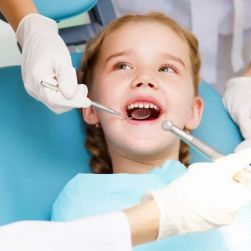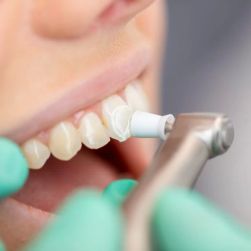Introduction to Oral Hygiene Challenges in Dementia
As the population in the United States ages, the prevalence of dementia is becoming a significant concern, impacting millions of elderly individuals and their families. Dementia, a collective term for progressive neurodegenerative disorders, severely affects cognitive functions, making daily activities, including oral hygiene, a formidable challenge. Dentistry Toothtruth strives to raise awareness about the importance of maintaining oral health in seniors with dementia.
Oral hygiene in seniors is crucial, not only for maintaining a healthy mouth but also for ensuring overall health and well-being. The health challenges posed by dementia often lead to neglect of oral hygiene, resulting in a plethora of dental issues such as tooth decay, gum disease, and infections, which can exacerbate existing health problems. Addressing these issues requires understanding the unique challenges dementia patients face and devising effective care strategies.
This article delves into the specific oral hygiene challenges encountered by elderly individuals with dementia in the United States and explores practical solutions to overcome these obstacles. By understanding these challenges, caregivers and healthcare providers can offer more effective support and ensure that seniors maintain their dignity and quality of life.
Cognitive Impairment and Its Impact on Oral Hygiene
The primary challenge faced by elderly individuals with dementia is cognitive impairment, which significantly hinders their ability to perform routine oral care practices. Memory loss, impaired reasoning, and decreased ability to follow instructions make it difficult for seniors to maintain regular brushing and flossing schedules. This neglect can quickly lead to tartar buildup, cavities, and periodontal disease.
Data shows that nearly 60-70% of dementia patients experience moderate to severe cognitive decline, highlighting the urgent need for customized oral hygiene practices that accommodate their limitations. Caregivers often need to assume greater responsibility for ensuring oral hygiene, which includes daily brushing and professional dental visits.
Care strategies should focus on simplifying oral care routines. Using adaptive equipment such as electric toothbrushes with larger handles or water flossers can enhance accessibility and ease. Dentists and caregivers can also implement memory aids, such as routine checklists or visual cues, to remind seniors of their oral hygiene routine.
Physical Limitations and Accessibility Issues
In addition to cognitive impairments, physical limitations common in elderly individuals can further complicate oral hygiene efforts. Conditions such as arthritis, reduced dexterity, and muscle weakness hinder the ability to perform precise movements required for effective brushing and flossing. These challenges necessitate adjustments in the approach to oral hygiene.
Research indicates that over 50% of elderly individuals with dementia suffer from arthritis or similar conditions, which can make handling standard dental hygiene tools difficult. As a solution, caregivers should consider ergonomic dental devices specifically designed for individuals with limited mobility.
Accessibility to professional dental care is another critical issue. Many seniors rely on caregivers for transportation, which may be less frequent due to various restrictions. Increasing mobile dental services or coordinating community-based dental support initiatives can alleviate this barrier, ensuring seniors access the care they need.
Behavioral Challenges during Dental Care
Dementia often manifests in behavioral changes, which can complicate dental care routines. Anxiety, aggression, and agitation are common reactions during dental visits or even during daily oral hygiene tasks, posing significant challenges to caregivers and dental professionals.
Effective communication and behavioral management strategies are essential to overcoming these obstacles. Building rapport and understanding patient cues can help ease anxiety associated with dental procedures. Techniques such as desensitization and positive reinforcement have proven successful in reducing distress and encouraging cooperation.
Training caregivers in behavioral strategies can significantly enhance the effectiveness of oral care routines. Patient-centered approaches that prioritize comfort and familiarity are more likely to yield compliance and success.
Nutritional Considerations and Oral Health
Poor nutrition, often observed in individuals with dementia, can have a detrimental impact on oral health. Malnutrition and dehydration can exacerbate oral health problems, leading to increased vulnerability to infections and slower healing processes.
Nutritional deficits may also result from compromised chewing abilities due to dental issues, creating a cyclical problem that further degrades oral health. Caregivers should prioritize a balanced diet that supports oral health, ensuring adequate intake of vitamins and minerals essential for gum and tooth health.
Incorporating nutrient-rich, easily chewable foods into meals can help bridge the gap. Dental professionals should work closely with nutritionists to design dietary plans that consider the dental needs of dementia patients, promoting overall health and quality of life.
Role of Caregivers in Ensuring Oral Hygiene
Caregivers play a pivotal role in maintaining oral hygiene for elderly individuals with dementia. Their involvement ranges from direct assistance with daily dental care tasks to transporting seniors to dental appointments. The caregiving relationship profoundly impacts the quality of oral health support received by dementia patients.
Statistics indicate that over 80% of non-institutionalized older adults with dementia receive care from family members. Equipping caregivers with the knowledge and tools necessary for effective oral hygiene practices is crucial for success. Educational programs and resources can enhance caregivers' understanding of best practices and potential complications.
Support groups and networks can also provide caregivers with shared experiences and coping strategies, enhancing their ability to provide thoughtful and compassionate oral care.
Collaboration with Dental Professionals
For optimal oral health outcomes, collaboration between caregivers, dental professionals, and healthcare providers is essential. Regular dental visits should be prioritized to monitor and address oral health issues promptly, taking into consideration the nuances presented by dementia.
Dentists specializing in geriatric care are well-equipped to handle the unique needs of dementia patients. They can offer tailored care plans that integrate seamlessly with daily routines, ensuring minimal disruption and maximum efficacy.
Innovations in dental technologies and treatments provide additional options for managing oral health in dementia patients. Collaborations with research institutions can drive advancements and cultivate new strategies for effective oral care within this population.
Conclusion and Recommendations
In summary, maintaining oral hygiene in elderly individuals with dementia requires a multifaceted approach that accounts for cognitive, physical, and behavioral challenges. By understanding the unique obstacles faced by this demographic, caregivers and healthcare providers can implement effective strategies to promote oral health and overall well-being.
It is essential to empower caregivers with the tools and knowledge required to overcome these challenges. Regular communication with dental professionals and interdisciplinary collaboration can significantly enhance care quality.
To ensure the dignity and quality of life for seniors with dementia, society must recognize the importance of oral health. By prioritizing dental care with assistance from platforms like Dentistry Toothtruth, a healthier future for elderly individuals with dementia can be realized.






